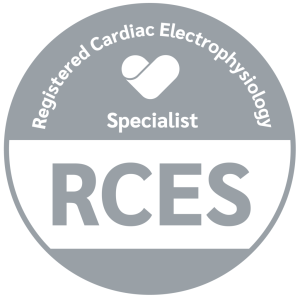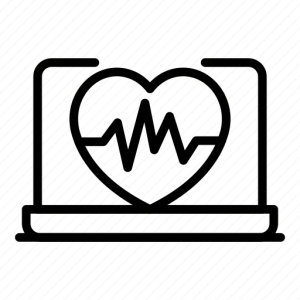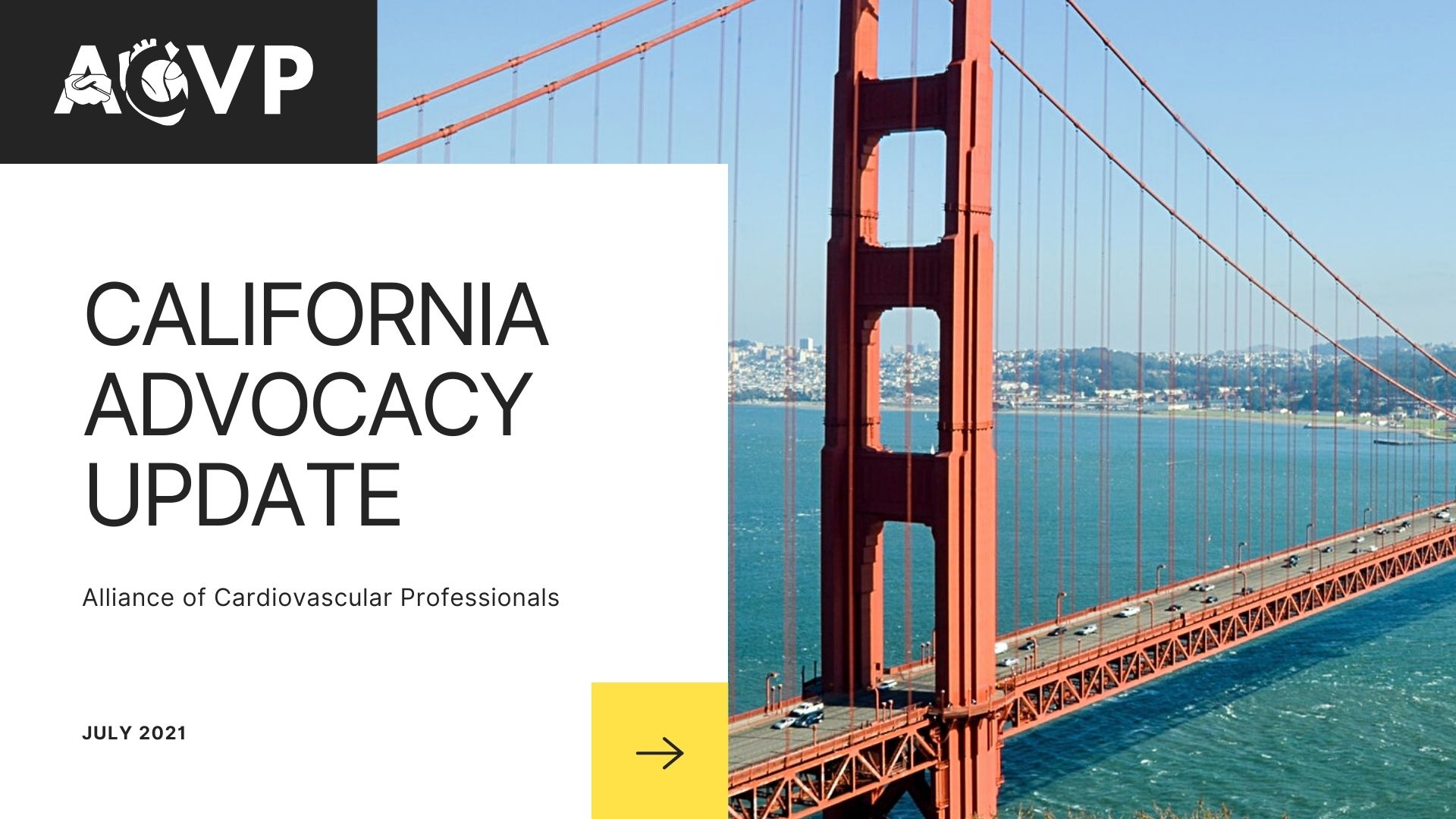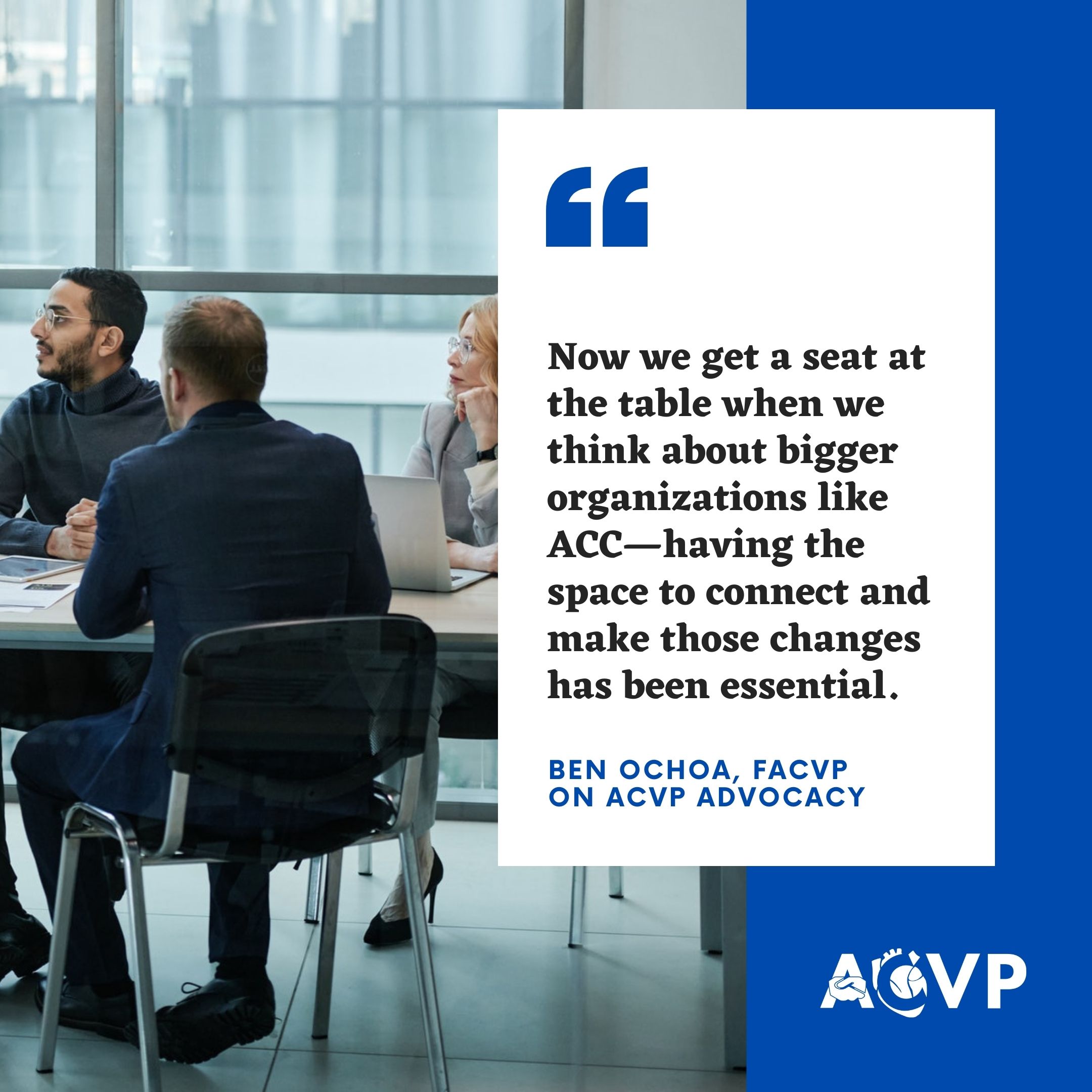California fluoroscopy regulations were amended in 2019/20 with recognition of all professionals in the cath lab—here's the latest.
The pandemic has brought many changes to the healthcare landscape. One of the most notable recognitions, however, is the fact that allied health professionals are nimble, can provide ongoing support, and are, indeed, ESSENTIAL!
Nowhere is this more true than in the cardiovascular cath lab. While there are many roles and functions that are critical for care, cardiovascular professionals are able to provide support across a variety of functions.
ACVP Helped Secure California Fluoroscopy Amendment
California’s Title 17 was amended in 2019/2020 with recognition that all professionals should be able to provide support as directed by the cardiologist. Restrictions preventing full participation have been lifted – especially as it relates to California fluoroscopy.
Cardiovascular professionals are able to move the patient, or, for the purpose of re-centering the equipment to the area of clinical interest, move the equipment as long as they are not actuating the equipment to emit radiation; selecting the technique factors or mode of operation; or moving the c-arm or table while radiation is being emitted.
It is worth noting that as long as the operator (cardiologist) maintains the necessary fluoroscopy permit and is making these determinations, the cardiovascular professional is able to support the work appropriately.
The Alliance of Cardiovascular Professionals supported professionals on the ground in California in securing this important amendment.
Knowledge is Power: Continuing to Advocate on the Ground
Please note—often professionals are impacted by State-level regulations via another party's interpretation or understanding of said regulations. This understanding can be incomplete or out-of-date, causing resolved issues to linger in practice. It is crucial to be equipped with this knowledge and to continue to advocate to ensure that all professionals and administrators understand this amendment.
It may also be important to remember that this amendment may be wrongly misunderstood as a relaxing of regulations due to the COVID-19 pandemic—that is not entirely the case, as this amendment was discussed and secured from 2015 through to 2019, via California Department of Public Health committees, before the COVID-19 pandemic impacted the health workforce. However, the pandemic does continue to illustrate its crucial importance.
Why This Amendment is Crucial, Beyond California Fluoroscopy
It is also always effective to continue to explain the amendment along with its rationales: it was fortunate this amendment was secured in California ahead of the COVID-19 pandemic, when workforce shortages became an even more pressing issue.
There is a workforce shortage EVERYWHERE – it is not any anyone’s interest in restricting professionals from doing work for which they are trained, particularly where there has been no public harm demonstrated by full engagement. The only way to alleviate shortages that impact both access and quality of care is to recognize the work of all professionals and encourage decision makers to employ professionals to reach the top of their credentials.
In the case of CVTs, those that are credentialed or educated in formal programs have been trained to perform all roles as directed by a physician in a cath lab. It is important to employ all participants that help ensure the team produces the strongest quality outcomes possible.
Let us know what YOUR hospital is doing and how your institution is complying with the updated regulations. Should ACVP pursue legislation to fully engage and exempt cardiovascular professionals?
Please let us know – respond to peggymcelgunn@comcast.net with information regarding what your institution is doing and how it is managing to support all team members in the cath lab!



